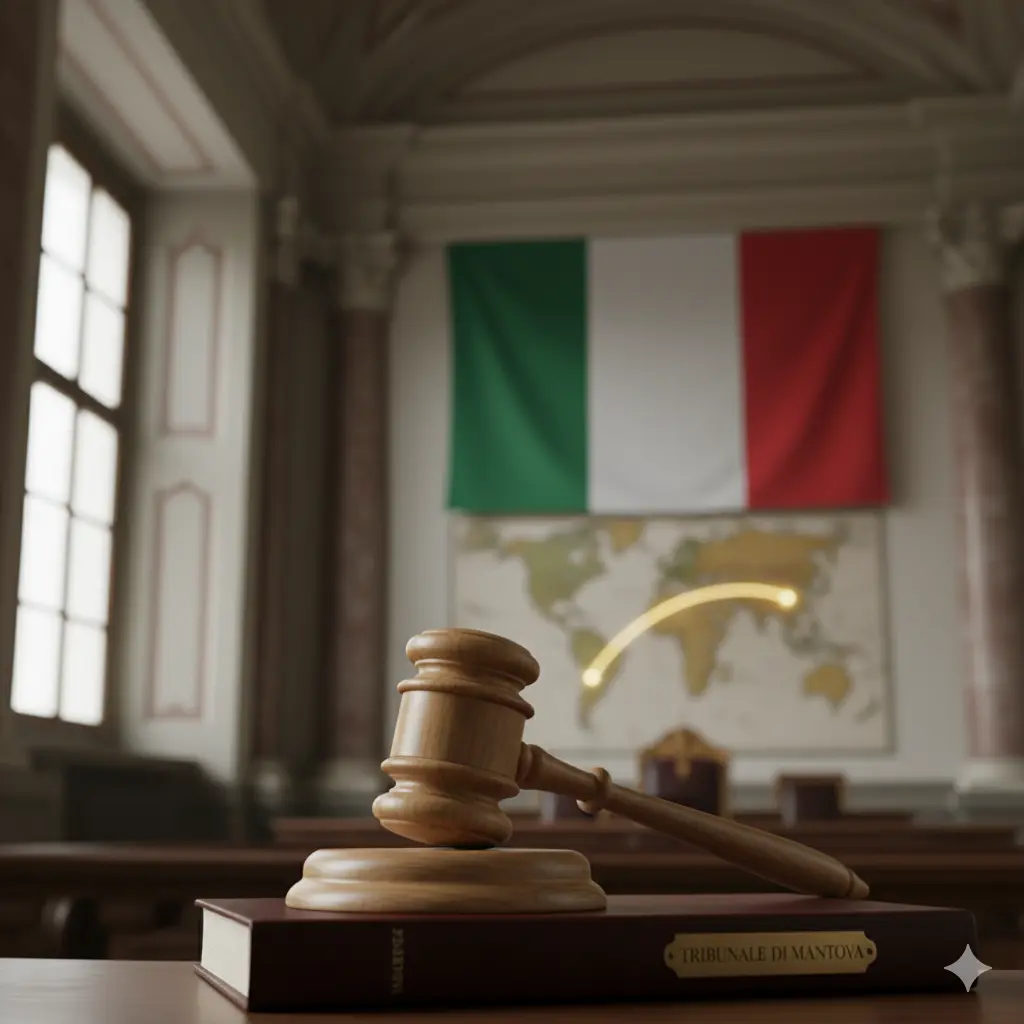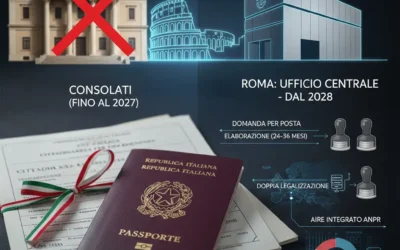On October 24, 2025, the Court of Mantua (Tribunale di Mantova) raised a constitutional challenge to Article 3-bis of Law No. 91/1992, introduced by Decree-Law No. 36/2025 and converted with amendments by Law No. 74/2025. This article modified the rules for acquiring Italian citizenship by descent.
This decision follows an earlier challenge by the Court of Turin, which raised similar constitutional concerns about the new law.
READ ALSO: Italian Citizenship by Descent: Turin Court Questions the Constitutionality of the New Law 74/2025
The specific case
The case concerns a minor born in Brazil, already a Brazilian citizen, whose mother is an Italian citizen, as established by a final court judgment.
Before the new law came into force, under Article 1 of Law 91/1992, the minor would have automatically acquired Italian citizenship by blood right (jure sanguinis) at birth. The new Article 3-bis of Law 91/1992 establishes specific conditions for those born abroad who possess another citizenship:
- Submission of application to the consular office or mayor (Comune) by 11:59 PM on March 27, 2025 (letters a and a-bis);
- Judicial application by the same date (letter b);
- First or second-degree ancestor with exclusive Italian citizenship (letter c);
- Parent or adoptive parent resident in Italy for at least two years before birth (letter d).
In the minor’s case, none of these conditions were met. Consequently, according to the new law, they would never have acquired Italian citizenship, despite being born to an Italian mother.
Grounds for conflict with the Constitution
The Court of Mantua identified several aspects of possible unconstitutionality of Article 3-bis of Law 91/1992.
1. Violation of Article 3 of the Constitution – legitimate expectations and equal treatment
Article 3 of the Constitution protects people’s right to rely on existing laws. Citizens should be able to trust that the rules governing their rights will remain stable.
- Laws can change existing situations, but the changes must be reasonable and cannot unfairly disrupt what people expected based on previous rules
- Changing citizenship rules retroactively violates the trust of those who were born before the new law and were already Italian citizens by blood right, even without having formally requested recognition
- The law treats people in similar situations differently based only on the date they submitted their application, creating arbitrary and unjustified differences
2. Violation of Article 2 of the Constitution – inviolable right to citizenship
The right to citizenship by blood right is natural, original, and imprescriptible. Article 3-bis transforms it into a “benefit to be requested,” affecting a fundamental individual right.
3. Violation of Article 24 of the Constitution – access to judicial protection
The provision obstructs access to justice for those who have already acquired citizenship at birth. It does not set reasonable deadlines for requesting recognition from consular authorities, comuni, or courts, making it difficult to exercise an already acquired right.
4. Violation of Articles 1,par. 2, 56, and 58 of the Constitution – political rights
Citizenship is required to vote and participate in democracy. Taking away citizenship retroactively changes who can vote and undermines democratic principles.
5. Violation of Articles 72 and 77 of the Constitution – legislative reservation and emergency decree
Citizenship matters require ordinary law approved by Parliament. The decree-law used by the Government lacks the requirements of urgency and extraordinary necessity required by Article 77 of the Constitution.
The Court observes that the reasons given by the Government (preventing an excessive influx of applications for citizens abroad) do not constitute extraordinary urgency sufficient to justify emergency decree.
The Court of Mantova observes that the problem of overloaded citizenship applications has been known for a long time and does not represent a sudden emergency. Therefore, there were no grounds to use an emergency decree.
Such an important reform should have been debated and approved by Parliament, not imposed by the Government through emergency procedures, especially since it retroactively worsens the situation of those who were already Italian citizens from birth.
6. Violation of Article 117,par 1, of the Constitution – international obligations
The retroactive provision may violate international obligations, including the principle of non-discrimination enshrined in the European Convention on Human Rights (Article 14) and the International Covenant on Civil and Political Rights (Article 26)..
The Court’s proposed solution
According to the Court of Mantua (Tribunale di Mantova), Article 3-bis essentially takes away citizenship from people who were already Italian citizens from birth. The law doesn’t even give people a reasonable amount of time to apply for recognition after it came into effect, meaning those who miss the deadline could automatically lose their citizenship.
Following the Court of Turin’s earlier decision (Order No. 167/2025), which raised similar concerns, the Mantua Court suggests a solution: remove the retroactive parts of the law. This way, the reform could still achieve its goal—ensuring people have a real connection to Italy (the “genuine link” principle recognized by EU law)—without harming those already born.
In practical terms, Article 3-bis would only apply to people born after March 27, 2025, when the new law took effect. Everyone born before that date would keep their citizenship rights under the previous rules, protecting those who were already Italian citizens from birth.
Case law cited
The Court of Mantova cited several rulings of the Court of Cassation:
- Cass. United Sections No. 25318/2022: Italian citizenship by blood right is acquired automatically at birth and represents permanent status;
- Cass. United Sections No. 4466/2009: the right to citizenship is original, imprescriptible, and does not require judicial recognition;
- Cass. United Sections 29459/2019: retroactivity of restrictive provisions can be unlawful if it violates citizens’ legitimate expectations.
Conclusion
The Court of Mantua’s challenge highlights serious constitutional problems with Article 3-bis of Law 91/1992, particularly its retroactive application, unequal treatment of citizens, and violation of fundamental rights.
The decision emphasizes that Italian citizenship by descent is a fundamental right acquired at birth, not a privilege that must be requested.
The Constitutional Court will now decide whether the law violates Italy’s constitutional principles.





